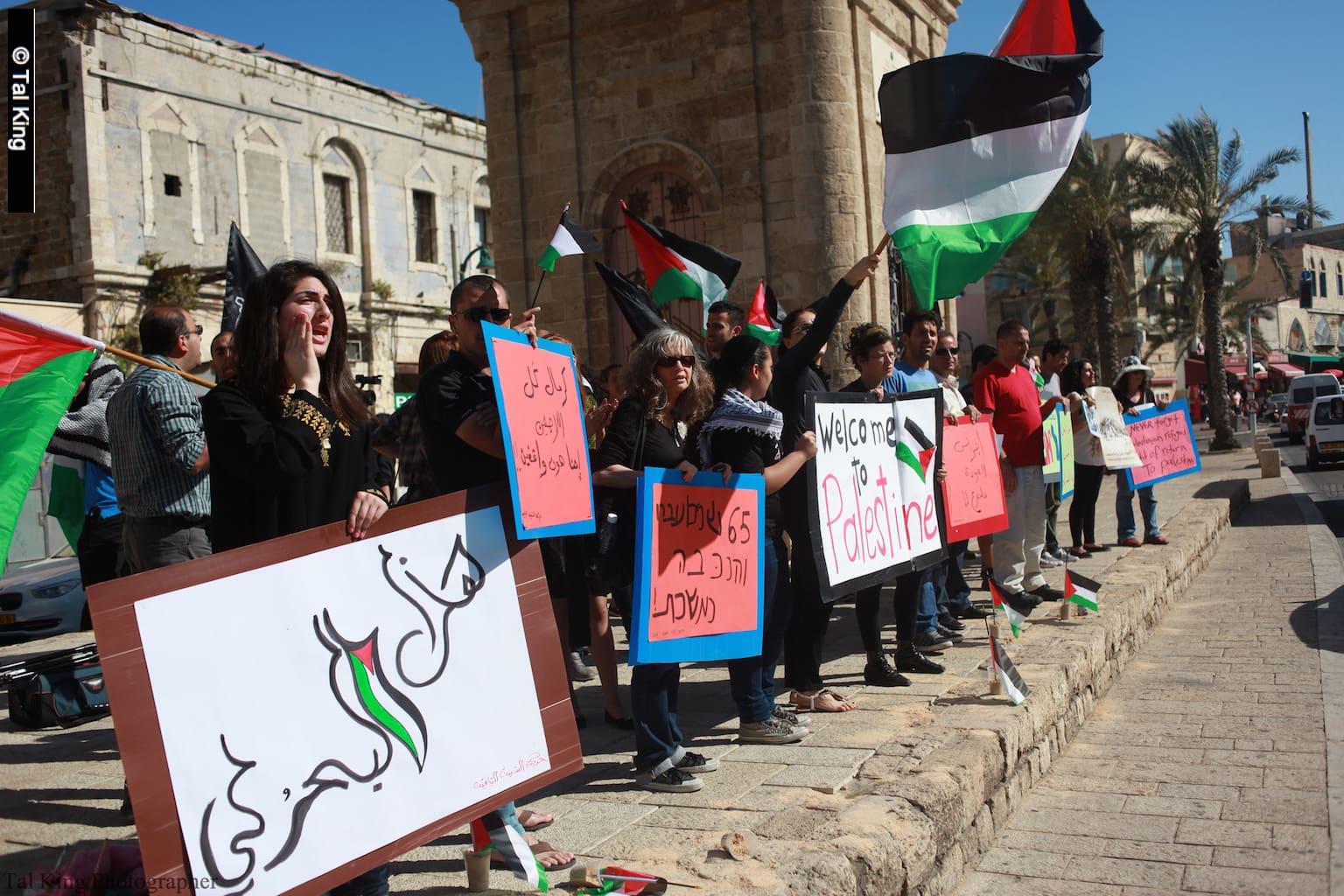Palestine-Israel: Europe drowning in America’s failures
On Monday, Jan. 18, 2016, the monthly meeting of the European Union Foreign Affairs Council in Brussels is expected to discuss and decide on next steps to be adopted by the EU on the Israeli-Palestinian issue. Policy-makers in Israel are worried as they fear an expansion of European efforts to isolate Israel’s settlements.
Palestinian citizens in Israel: A fast-shrinking civic space

Israel still portrays itself as a Jewish and democratic state. Yet in practice, as its Palestinian citizens can attest, it functions as a Jewish ethnocracy, leaving small margins of freedom for its Palestinian citizens that have been steadily shrinking in the past few years.
Palestinian evades Israel extradition in Sofia embassy
Diana Buttu, a former PLO spokeswoman and policy analyst at Al-Shabaka: The Palestinian Policy Network, said Israel’s request to extradite a former political prisoner raises several concerns.
Les colonies israéliennes asphyxient l’économie palestinienne – 2ème partie

Il faudrait passer de l’étiquetage des produits coloniaux à la cessation de toutes transactions avec les colonies. Les pays européens devraient envisager une interdiction de toutes les marchandises israéliennes.
Les colonies israéliennes asphyxient l’économie palestinienne – 1e partie

Israël considère que les récentes directives de l’UE sur l’étiquetage de certains produits des colonies israéliennes ne sont que le début d’une tendance plus importante. Il craint que cela n’ouvre la porte à des mesures plus fortes contre ses entreprises coloniales illégales et il tente de réunir les alliés pro-israéliens tant en Europe qu’aux Etats-Unis. L’un de ses arguments-massue est que l’étiquetage nuirait aux travailleurs palestiniens.
Endless resolutions and dispossession
Palestine can add yet another approved draft resolution to the list of UN General Assembly attempts to distort Israeli colonial appropriation into a manageable conflict with repercussions. Last Tuesday, the UNGA adopted a draft resolution that emphasises “Permanent sovereignty of the Palestinian people in the Occupied Palestinian Territory, including East Jerusalem, and of the Arab population in the occupied Syrian Golan over their natural resources.”
West Bank Businesses: A View From the P.L.O.

Portraying Israeli settlements and their businesses as hubs of coexistence is absurd. The settlements have always been primary obstacles to peace in international political forums, and major impediments to Palestinian economic growth. In fact, Israeli settlements stifle Palestine’s economy, according to Al-Shabaka, the Palestinian Policy Network.
UN adopts resolution on Palestinian sovereignty over natural resources
The United Nations General Assembly on Tuesday adopted a resolution demanding Palestinian sovereignty over natural resources under Israeli occupation. The draft solution, “Permanent sovereignty of the Palestinian people in the Occupied Palestinian Territory, including East Jerusalem, and of the Arab population in the occupied Syrian Golan over their natural resources,” was adopted with 164 votes in favor and five against.
Catastrophe for Syrians and Palestinians alike in war-ravaged country
Yarmouk is not the only Palestinian refugee camp that has been affected by the devastating war.
Ein al-Tal, Deraa, Husseiniyeh, Sbeineh and Khan Eshieh “have suffered significant shelling, destruction and the massive displacement of their populations,” according to a paper published by the Palestinian think tank al-Shabaka.








